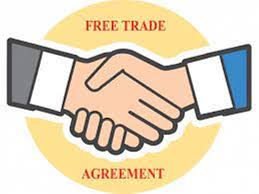The Indian government is pushing for revisions to the India-UAE Free Trade Agreement, following recommendations from the Global Trade Research Initiative (GTRI) to withdraw duty concessions on precious metals and jewellery

In a push to safeguard India's domestic jewellery industry, the government has sought revisions to the India-UAE Free Trade Agreement (FTA). The Global Trade Research Initiative (GTRI) has recommended the withdrawal of duty concessions on key imports, including silver, diamonds, and gold jewellery, citing concerns over the misuse of rules of origin and a surge in imports that threaten local manufacturers.
The FTA, formally known as the Comprehensive Economic Partnership Agreement (CEPA), was signed between India and the United Arab Emirates on February 18, 2022, and took effect on May 1 of the same year. Under the current terms, the agreement allows for unlimited duty-free imports of precious metals such as gold, silver, platinum, and diamonds, a provision GTRI warns could be detrimental to India's domestic sector.
GTRI has raised alarms over the potential exploitation of the rules of origin—a key component that determines eligibility for tariff concessions. The think tank has urged the government to focus on revising these rules during the review process. Their suggestions include withdrawing tariff cuts on precious metals, adjusting value addition rules to exclude profit margins from calculations, and prohibiting the conversion of high-value products like silver bars into lower-value items like silver granules to exploit CEPA benefits.
The think tank also emphasized the need to curb the import of sanctioned metals from Russia via Dubai and called for the revocation of special privileges granted to the Gift City bullion exchange, citing concerns over misuse.
The statistics paint a stark picture. In FY24, India imported 119.35 tonnes of gold bars valued at $7.62 billion, while silver imports from the UAE skyrocketed by 5853%, from $29.2 million in FY23 to $1.74 billion in FY24. Gold jewellery imports also surged by 290%, from $347 million in 2022-23 to $1.35 billion in FY24.
To manage the influx of gold and silver at reduced duties under the CEPA, the government had lowered import duties on these metals from 15% to 6% in the 2024 Budget. However, GTRI notes that this is only a temporary measure, as tariffs on gold and silver from Dubai are set to drop to zero in the coming years, potentially leading to another surge in imports.
Ajay Sahai, Founder of GTRI, highlighted a significant loophole in the agreement concerning platinum imports. He explained that India has agreed to a zero tariff on unlimited quantities of platinum from Dubai, with the tariff set to drop to zero by 2026. According to World Customs Organisation (WCO) classification rules, any metal containing just 2% platinum can be classified as platinum. This loophole, Sahai warned, could allow firms to import platinum that actually contains 98% gold, leading to a significant loss of customs revenue and a drain on foreign exchange reserves.
GTRI also expressed concern over the concessional tariffs on silver imports, noting that India agreed to eliminate the duty on silver over a ten-year period starting in 2022. With tariffs currently set at 8%, the think tank warned that imports would likely rise again unless the CEPA is renegotiated.
The report further noted that tariff concessions under the CEPA are negatively impacting India's jewellery industry. The agreement had India reduce tariffs on gold jewellery by 1% each year, from 20% to 15% over five years, with a Tariff Rate Quota (TRQ) of 2.5 tonnes. Currently, the tariff is 17% with a TRQ of 2.3 tonnes, making imports from the UAE much cheaper than domestic products, thus squeezing local manufacturers.
In addition, GTRI claimed that many imports fail to meet the rules of origin conditions and should not qualify for concessions. The report alleged that Dubai firms import silver bars from Russia and other countries, convert them into granules, and claim a 3.5% value addition, with only a minimal portion of this being actual value addition. The rest, according to the report, is legally shown as profit, potentially enabling money laundering to show higher realizations.
The think tank also flagged the lack of transparency in trades conducted at the Gift City exchange, raising concerns about pre-arranged deals and invoice manipulation.
The government is now under pressure to reassess the CEPA terms to better protect India's domestic industry while addressing the loopholes in the current agreement.
Be the first to comment